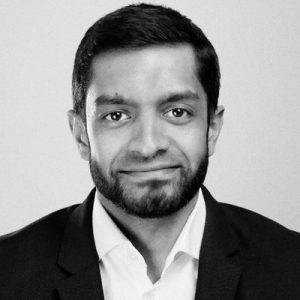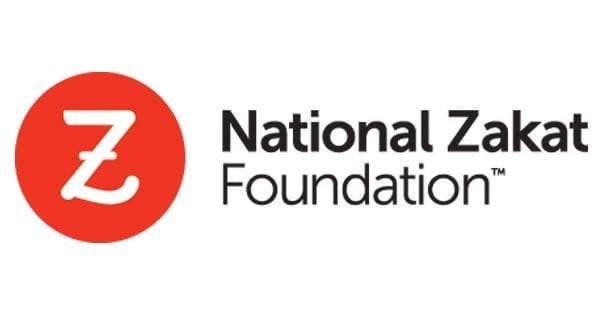The CEO of the National Zakat Foundation (NZF), Iqbal Nasim, sets out his organisation’s long-term strategic vision in light of major changes the charity have made in 2020.
The NZF has played a pioneering role in the British Muslim charity sector as the only local Zakat platform with a UK-wide reach. As Chief Executive of NZF since 2011, I’ve been fortunate to work alongside many dedicated people to build this local Zakat offering, understanding the third pillar of Islam at a strategic and practical level, and educate many Muslims about the importance and scope of Zakat within our faith.
I’ve seen NZF grow from a simple idea to a popular platform through which tens of thousands of Muslims have given over £15m of Zakat that has positively impacted the lives of so many Muslims in need across the country.
I’m incredibly pleased and grateful for what has been achieved but also fully aware of the fact that some of the decisions we’ve made in recent years, albeit in good faith, have alienated some of our supporters and have led to criticism.
As a team, we’ve spent time reflecting on this, and I believe that we’ve emerged with a really strong Zakat giving proposition that both addresses grievances directly but also goes a lot further in terms of clarity, transparency and choice. I hope that all of this will give supporters, donors and Muslim communities at large complete peace of mind when giving Zakat through NZF going forward. Here are the details:
Putting you in the driving seat
What we used to do:
Subscribe to our newsletter and stay updated on the latest news and updates from around the Muslim world!
Previously, you gave your Zakat to NZF and entrusted us to allocate it across different causes. Around 85% went towards our Economic Empowerment Programme, with 15% being used to fund Muslim institutions and individual leaders through our Leadership Investment Programme.
What we’ll do from now on:
Rather than NZF deciding where your Zakat goes, you’ll be able to choose how to allocate your Zakat to those who need it across three funds:
- Hardship Relief – help Muslims in desperation get through a rough patch by giving them quick access to funds to cover basic living expenses such as food.
- Housing & Work – help Muslims get back on their feet with secure, affordable accommodation and the support they need to find a job and take control of their lives.
- Education – strengthen the community by investing in the learning and development of emerging Muslim religious leaders and other community champions.
Giving you the choice over how your Zakat is spent is vital to how we want NZF to develop. But if you don’t want to choose yourself, you can simply go with our recommended allocation. If you select this option, you’ll still be clearly shown how much of your Zakat has been put towards each fund.
Making your Zakat 100%
What we used to do:
Normally we use a small portion of Zakat to fund the costs of our grants team. This is needed to assess and support Zakat applicants, ensuring your Zakat goes where it should.
What we’ll do now:
Now, if you prefer 100% of your Zakat to go directly to those who need it, you can give a voluntary add-on to cover the costs instead. So previously if you gave £500 of Zakat, we would automatically use up to £50 to cover the costs of distributing £450, a practice that has always had scholarly approval. But now, if you’d rather all £500 go directly as a grant to someone in need, you’ll have the choice to add a £50 donation to make your Zakat 100%.
We don’t hide from the fact that there are costs involved in doing what we do. But this facility lets you decide exactly how the direct costs of giving end up being covered.
Simplifying our funding of leaders and institutions
What we used to do:
Our Leadership Investment Programme previously funded individual leaders for both personal and project costs (through our Muslim Leaders Development Fund), as well as institutions.
What we’ll do now:
Going forward, we’ll no longer be involved in institutional funding. All the Zakat given from now on will be for individuals only.
Our Muslim Leaders Development Fund has now become our ‘Education fund’. If you opt to give Zakat for Education, you’ll only provide funding for course fees and training for individuals engaged in community service. No money will be used for funding any personal or project costs.
Grants across all our funds will be clearly capped and we’ll conduct thorough research into the backgrounds of those receiving Education grants to ensure they align with the organisation’s values. While we still won’t be able to share the details of individual grantees publicly, we’re open to sharing them with scholarly panels for independent review.
Crucially, you’ll have the choice not to allocate anything at all towards Education if you prefer.
Scholarly endorsement of our Zakat policy
What we used to do:
Historically, we’ve always taken a proactive approach to engaging with scholars for advice, support and validation. This has included receiving certification from Al-Qalam Shariah Panel, working with independent scholars and experts, and recruiting in-house scholarly advisors.
What we’ll do from now on:
We’ll continue to be proactive in working with scholars and are confident that our Zakat policies once again adhere to conservative scholarly opinions on how Zakat should be distributed. All our policies and processes have recently been reviewed and certified by the Islamic Shariah Council. They are currently being reviewed by other scholarly panels too and NZF is regularly cited amongst charities as a leading example of an organisation handling Zakat that has one of the most long-standing track records of engaging scholarly opinion in a serious and considered way.
Keeping you updated about your Zakat
What we used to do:
Previously, once you’d given Zakat, that was it! The amount of information you received about the next steps in relation to your Zakat specifically was quite limited, even though we’ve regularly provided general updates about our activities.
What we’ll do from now on:
NZF’s ‘ZakaTracker’ is another new feature of our service, which will keep you updated about exactly when your Zakat is received, when it’s delivered, and the impact of your chosen funds on the lives of fellow Muslims. This forms part of our ongoing efforts to make the whole Zakat experience more personal and transparent.
All of this is for one vision: A thriving, closer Muslim community powered by Zakat
Zakat, when it functions effectively, is not just random charity. It’s a unique form of religious social welfare which uplifts the entire Muslim community, helping people overcome adversity and ensuring they’re not held back by their financial circumstances.
The long-term benefits of Zakat are a prosperous community which can achieve its potential and a safety net for its most vulnerable. Quite simply, when you give Zakat, we all win.
NZF is dedicated to making Zakat a force for positive change in the UK, both for those who give Zakat as well as the thousands on our doorstep who need to receive it.
Less than 10 weeks until Ramadan – will you get involved?
With less than 10 weeks until Ramadan, I’m excited about the potential to keep building a nationwide network connecting Muslims in Britain through Zakat over the next decade. But, after relying on our Lord’s guidance and support, this can only be achieved with your support and involvement.
Whether you’ve given through NZF in the past, or this is the first time you’ve heard about our platform, I hope that NZF’s direction outlined above encourages you to get involved with us in 2020.
By giving through NZF you’ll help Muslims unlock their potential, help create a thriving, closer Muslim community around Britain and participate alongside thousands of others in an exciting movement for positive change. You can find out more at www.nzf.org.uk
 Iqbal Nasim is the Chief Executive of National Zakat Foundation. Prior to heading up NZF in 2011, Iqbal worked for over five years in the investment banking industry as an equity analyst. He holds an MA in Economics and Management from Cambridge University and an MSc in Voluntary Sector Management from Cass Business School. In 2019 he was awarded an MBE for services to tackling poverty and community development.
Iqbal Nasim is the Chief Executive of National Zakat Foundation. Prior to heading up NZF in 2011, Iqbal worked for over five years in the investment banking industry as an equity analyst. He holds an MA in Economics and Management from Cambridge University and an MSc in Voluntary Sector Management from Cass Business School. In 2019 he was awarded an MBE for services to tackling poverty and community development.


















